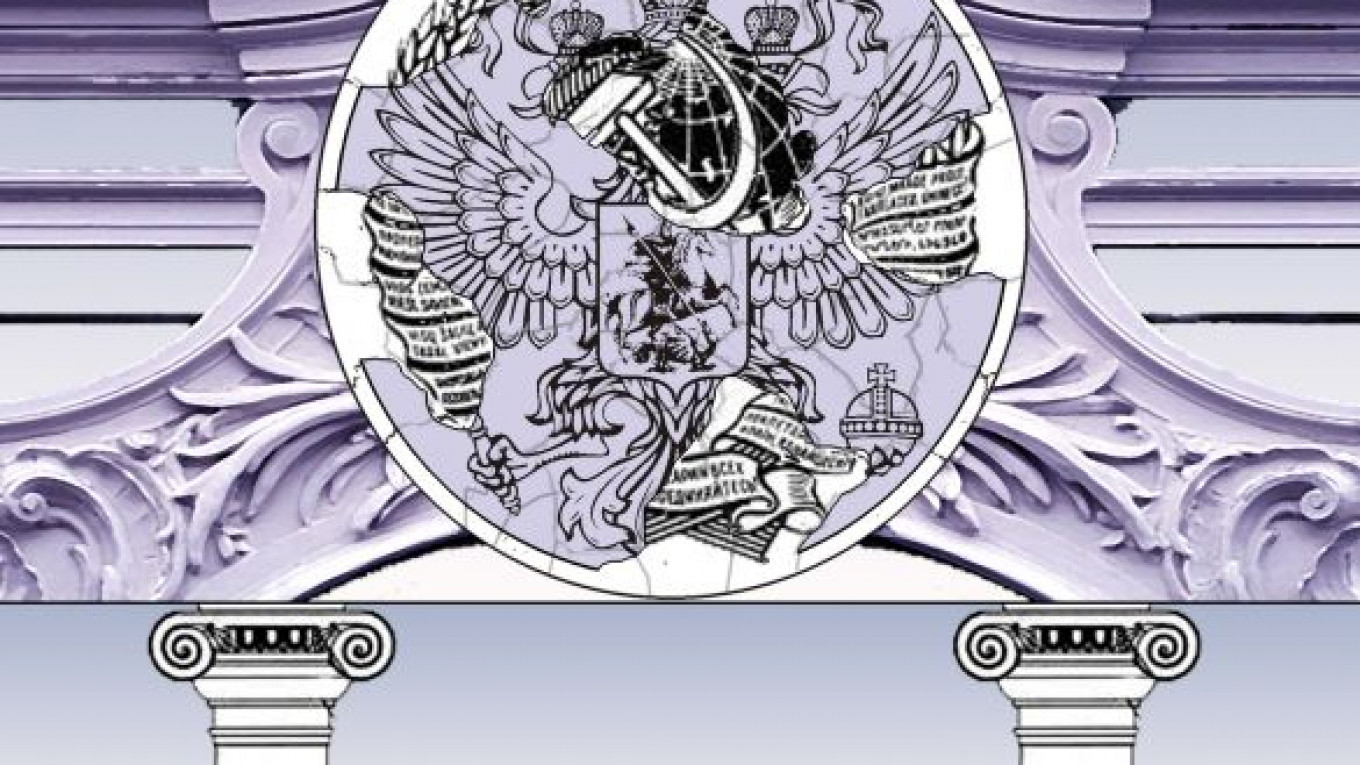One year ago on May 7, President-elect Vladimir Putin's motorcade traversed the empty streets of Moscow, cleared of every living soul by the police, to his inauguration in the Kremlin. This anniversary passed mostly unnoticed by the public and mainstream media. The reason is not so much that it was overshadowed by Victory Day celebrations and protest demonstrations but because there was nothing much to celebrate.
The country is not in better shape than it was a year ago, a fact that even Putin loyalists admit. Journalist wrote on his LiveJournal blog: "The leaders of the ruling class are out of control. Reforms have been either unsuccessful or were transformed into business opportunities for bureaucrats. An innovative economy has not appeared, and there are no prospects for it in the near future. And the population hates the greedy ruling class more and more."
Today, it is absolutely clear that the liberal "Putin 2.0" predicted by his fans did not and will not appear. What Putin has achieved over the last 12 months fits perfectly into the description articulated by U.S. Secretary of State Hillary Clinton in Dublin last December: re-Sovietization.
Putin can count on staying in power as long as he wants, just like Soviet leaders Leonid Brezhnev or Josef Stalin before him.
In the economy, re-Sovietization means the continued strengthening of ineffective, gigantic state corporations. Meanwhile, over the same period the number of small- and medium-sized businesses has . In just the first quarter of 2013, almost 300,000 small businesses —about 7 percent of the total — closed their doors, according to the Economic Development Ministry.
The only new aspect of Putin's economic policy this year was the financing of a number of military projects. The president has said many times that he believes this is one of the most important sectors of the economy. Putin's approach is in stark contrast to the policy of both Presidents Boris Yeltsin and Mikhail Gorbachev, who saw the military as an albatross around the neck of the Russian economy.
Internationally, Putin has continued to retreat to the old bunkers of the Сold War. In his indirect reply to Clinton, Putin stated that the territory of the former Soviet Union is Russia's sphere of interest. In practice, this is used to hinder former Soviet republics in integrating into the European Union and developing stronger ties with Western countries. The "reset" with the U.S. can be considered dead in the water, and every attempt to draw Putin into the constructive resolution of international problems has been unsuccessful. This is not surprising since Russia is actually part of the problem, with Syria and Iran being two vivid examples.
Starting almost immediately last May, the State Duma quickly adopted a series of laws limiting citizens' rights. This garnered the Duma the nickname of the "mad printer" on the Russian blogosphere. The new limitations on human rights are so comprehensive that in just a year the situation has come close to that of the Soviet era.
New articles were added to the criminal and administrative codes to limit freedom of speech, assembly and association. In recent weeks, there has been a mass crackdown on nongovernmental organizations, which, according to activists, is designed to put NGOs under complete state control. , director of the Russian branch of Transparency International, predicted on her Facebook page that "sometime at the end of autumn there won't be a single independent NGO left. Not one. Some will try to curry favor with the victors. Others will die off without funding or cease operations. The holdouts will be closed, and their directors sent to the camps."
The most logical result of Putin's actions over the last year is a fall in . According to recent Levada Center polls, today only 26 percent of the population wants to see him re-elected, and 55 percent hope that a new president will be elected. Meanwhile, the slogan "Russia Without Putin" is now supported by 24 percent of the population, up from 19 percent last year.
Do these figures mean that Putin has no chance of re-election? Not at all. Thanks to the Kremlin's monopoly on the mass media and the well-greased system of "managing" elections, Putin can count on staying in power as long as he wants, just like Soviet leaders Leonid Brezhnev or Josef Stalin before him.
Given all of this, an event that took place last week in the Siberian city of Yakutsk has special symbolic meaning. A new monument to Stalin was unveiled. Let's forget about the millions of innocent victims who died at Stalin's bidding. Let this monument be a beacon on Putin's path of re-Sovietization.
Victor Davidoff is a Moscow-based writer and journalist who follows the Russian blogosphere in his biweekly column.
A Message from The Moscow Times:
Dear readers,
We are facing unprecedented challenges. Russia's Prosecutor General's Office has designated The Moscow Times as an "undesirable" organization, criminalizing our work and putting our staff at risk of prosecution. This follows our earlier unjust labeling as a "foreign agent."
These actions are direct attempts to silence independent journalism in Russia. The authorities claim our work "discredits the decisions of the Russian leadership." We see things differently: we strive to provide accurate, unbiased reporting on Russia.
We, the journalists of The Moscow Times, refuse to be silenced. But to continue our work, we need your help.
Your support, no matter how small, makes a world of difference. If you can, please support us monthly starting from just $2. It's quick to set up, and every contribution makes a significant impact.
By supporting The Moscow Times, you're defending open, independent journalism in the face of repression. Thank you for standing with us.
Remind me later.








